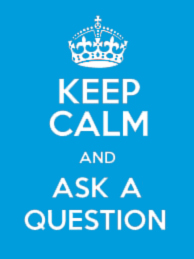How the case for digital communication got stronger
The wonders of digital communication have never been clearer. During the lockdown, technology allowed us to talk with and see people we couldn’t meet when we were all told to stay home. Even the most reluctant became frequent users of the platforms and apps that allowed us to connect with family, friends and colleagues. By the end of May, you may have had a less enthusiastic response to yet another Zoom meeting than you did in April, craving liberation from a screen. But technology, via everything from video conferencing to good old-fashioned emails, helped millions across the world to stay in touch and continue working.
“Real” vs digital communication in dentistry has never been a straightforward relationship. A lot of the latest, most innovative technology has been developed to help us communicate better – so the manufacturers say. But many dentists are still sat firmly on the fence.
Technology is a tool that needs to be in the right hands to be effective – it cannot replace the experience, technique and talent of a skilled dentist. There is also the issue of market saturation. In any dental journal you will find ads for equipment that promises to revolutionise the way you work. Turn the page and there’s another making similar claims. Even before 2020, practices have had an eye on their bottom line. With an indeterminate period of uncertainty ahead, is now the time to be spending money? After the initial cost, what about software updates, or if/when a better version is launched in six months’ time?
Real world versus digital
Digital communication facilitates remote working and, for many sectors post-lockdown, this is the way forward. Also, in some areas of areas of dentistry, there are services that are now being offered remotely, for example video calling for initial consultations. So, is this just a problem with the word “remote”? Describe someone as remote, and you’re describing them as distant and cold, when empathy and compassion are vital qualities for a dentist.
In my daily practice as an endodontic specialist who takes referrals, how well my patients and I communicate is key to successful treatment outcomes, and often this communication is non-verbal. I am constantly aware of the signs and signals they give that prompt me to stop, listen, ask. My area of speciality is one that has become alluringly cloaked in myth, mystery and misconception. Sometimes, when I am recommending root canal therapy and exalting its benefits to a patient, I might be hearing agreement, but seeing body language that tells me something different. That’s my cue to turn our conversation to their fears, concerns and anxieties. Only when I know they’re on the same page as me, can I proceed with confidence.
I believe that digital communication can be used in face-to-face appointments, to make patient conversations richer. At Endocare, our specialists use CBCT imaging, which allows us to make a comprehensive evaluation of the teeth in 3D and establish if any issues have been overlooked. Cutting-edge, digital technology gives us more information to share with our patients, improved diagnostics and a higher success rate. Everyone wins: patient, practitioner and practice.
When an individual feels their care and comfort are a genuine priority, there is more trust, more acceptance. Happy patients mean positive word of mouth. There is much chatter about the future of dentistry – a lot of which is speculative – so over the coming weeks and months, if you have patients choosing to invest their time at money at your practice, they will have expectations of absolute excellence from beginning to end. Your reputation for quality care must be protected, so it can grow and be shared.
Enhance, not replace
One short-term impact of Coronavirus is that we will likely have to schedule less patients on a daily basis to reduce footfall. Ts should be seen as an opportunity to add value and depth to the time you spend with each of them. So, if you’ve never quite got on board with digital, is it time to think again about what the latest technology could do for your work and practice? With all of us having to do things differently, it could help you adapt to the changes and challenges ahead. Digital communication will never replace face-to-face interaction, but it can enhance it.
The lockdown has taught us that digital communication can work in and alongside the “real” world. As patients start to trickle back, their satisfaction in our service is more important than ever. They want comfortable, successful and stable treatment, delivered by a team they trust. Cutting-edge technology in dentistry is a multi-tasker – it can enable us to communicate better, diagnose more accurately, work more efficiently and, ultimately, deliver improved clinical outcomes. It also means we can keep learning a– the new “normal” requires an open mind to stay up-to-date, competitive, motivated and inspired.
For further information please call EndoCare on 020 7224 0999













